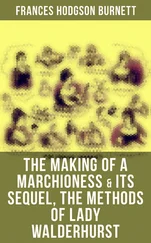Erckmann-Chatrian - Waterloo - A sequel to The Conscript of 1813
Здесь есть возможность читать онлайн «Erckmann-Chatrian - Waterloo - A sequel to The Conscript of 1813» — ознакомительный отрывок электронной книги совершенно бесплатно, а после прочтения отрывка купить полную версию. В некоторых случаях можно слушать аудио, скачать через торрент в формате fb2 и присутствует краткое содержание. Жанр: foreign_antique, foreign_prose, Историческая проза, на английском языке. Описание произведения, (предисловие) а так же отзывы посетителей доступны на портале библиотеки ЛибКат.
- Название:Waterloo: A sequel to The Conscript of 1813
- Автор:
- Жанр:
- Год:неизвестен
- ISBN:нет данных
- Рейтинг книги:5 / 5. Голосов: 1
-
Избранное:Добавить в избранное
- Отзывы:
-
Ваша оценка:
- 100
- 1
- 2
- 3
- 4
- 5
Waterloo: A sequel to The Conscript of 1813: краткое содержание, описание и аннотация
Предлагаем к чтению аннотацию, описание, краткое содержание или предисловие (зависит от того, что написал сам автор книги «Waterloo: A sequel to The Conscript of 1813»). Если вы не нашли необходимую информацию о книге — напишите в комментариях, мы постараемся отыскать её.
Waterloo: A sequel to The Conscript of 1813 — читать онлайн ознакомительный отрывок
Ниже представлен текст книги, разбитый по страницам. Система сохранения места последней прочитанной страницы, позволяет с удобством читать онлайн бесплатно книгу «Waterloo: A sequel to The Conscript of 1813», без необходимости каждый раз заново искать на чём Вы остановились. Поставьте закладку, и сможете в любой момент перейти на страницу, на которой закончили чтение.
Интервал:
Закладка:
When the clock struck five I jumped from my bed, washed and shaved and dressed myself, then Father Goulden, still behind his big curtains, would put out his nose and say:
"I hear you! I hear you! You have been rolling and tumbling for the last half hour. Ha! ha! it is Sunday to-day."
He would laugh at his own wit, and I laughed with him, and would then bid him good-morning and be down the stairs at a bound.
Very few people were stirring, but Sepel the butcher would always call out: "Come here, Joseph, I have something to tell you." But I only just turned my head, and ten minutes after was on the high-road to Quatre Vents, outside the city walls. Oh! how fine the weather was that beautiful year! How green and flourishing everything looked, and how busy the people were, trying to make up for lost time, planting and watering their cabbages and turnips, and digging over the ground trodden down by the cavalry; how confident everybody was too of the goodness of God, who, they hoped, would send the sun and the rain which they so much needed. All along the road, in the little gardens, women and old men, everybody, were at work, digging, planting, and watering.
"Work away, Father Thiébeau, and you too, Mother Furst. Courage!" cried I.
"Yes, yes, Mr. Joseph, there is need enough for that; this blockade has put everything back, there is no time to lose."
The roads were filled with carts and wagons, laden with brick and lumber and materials for repairing the houses and roofs which had been destroyed by the howitzers. How the whips cracked and the hammers rang in all the country round! On every side carpenters and masons were seen busily at work on the summer houses. Father Ulrich and his three boys were already on the roof of the "Flower Basket," which had been broken to pieces by the balls, strengthening the new timbers, whistling and hammering in concert. What a busy time it was, indeed, when peace returned! They wanted no more war then. They knew the worth of tranquillity, and only asked to repair their losses as far as possible. They knew that a stroke of a saw or a plane was of more value than a cannon-shot, and how many tears and how much fatigue it would cost to rebuild even in ten years, that which the bombs had destroyed in ten minutes. Oh! how happy I was as I went along. No more marches and counter-marches; I did not need the countersign from Sergeant Pinto where I was going! And how sweetly the lark sang as it soared tremblingly upward, and the quails whistled and linnets twittered. The sweet freshness of the morning, the fragrant eglantine in the hedges, urged me on till I caught sight of the gable of the old roof of Quatre Vents, and the little chimney with its wreath of smoke. "'Tis Catherine who made the fire," I thought, "and she is preparing our coffee." Then I would moderate my steps in order to get my breath a little, while I scanned the little windows and laughed with anticipated pleasure. The door opens, and Mother Grédel, with her woollen petticoat and a big broom in her hand, turns round and exclaims: "Here he is! here he is!" Then Catherine runs up, always more and more beautiful, with her little blue cap, and says: "Ah! that is good; I was expecting thee!" How happy she is, and how I embrace her! Ah! to be young! I see it all again!
I go into the old room with Catherine, and Aunt Grédel flourishes her broom and exclaims energetically: "No more conscription – that is done with!" We laugh heartily and sit down, and while Catherine looks at me, aunt commences again:
"That beggar of a minister, has he not written yet? Will he never write, I wonder? Does he take us for brutes? It is very disagreeable always to be ordered about. Thou art no longer a soldier, since they left thee for dead. We saved thy life, and thou art nothing to them now."
"Certainly, you are right, Aunt Grédel," I would say; "but for all that we cannot be married without going to the mayor – without a permit – and if we do not go to the mayor, the priest will not dare to marry us at the church."
Then aunt would be very grave, and always ended by saying: "You see, Joseph, that all those people from first to last have fixed everything to suit themselves. Who pays the guards, and the judges, and the priests, and who is it that pays everybody? It is we! and yet they dare not marry us. It is shameful; and if it goes on, we will go to Switzerland and be married." This would calm us, and we would spend the rest of the day in singing and laughing.
II
In spite of my great impatience every day brought something new, and it comes back to me now like the comedies that are played at the fairs. The mayors and their assistants, the municipal counsellors, the grain and wood merchants, the foresters and field-guards, and all those people who had been for ten years regarded as the best friends of the Emperor, and had been very severe if any one said a word against his majesty, turned round and denounced him as a tyrant and usurper, and called him "the ogre of Corsica." You would have thought that Napoleon had done them some great injury, when the fact was that they and their families had always had the best offices.
I have often thought since, that this is the way the good places are obtained under all governments, and still I should be ashamed to abuse those who could not defend themselves, and whom I had a thousand times flattered. I should prefer to remain poor and work for a living rather than to gain riches and consideration by such means. But such are men! And I ought to remember too, that our old mayor and three or four of the counsellors did not follow this example, and Mr. Goulden said that at least they respected themselves, and that the brawlers had no honor.
I remember how, one day, the Mayor of Hacmatt had come to have his watch put in order at our shop, when he commenced to talk against the Emperor in such a way that Father Goulden, rising suddenly, said to him:
"Here, take your watch, Mr. Michael, I will not work for you. What! only last year you called him constantly 'the great man.' And you never could call him Emperor simply, but must add, Emperor and King, protector of the Helvetic Confederation, etc., while your mouth was full of beef; now you say he is an ogre, and you call Louis XVIII., 'Louis the well-beloved!' You ought to be ashamed of yourself! Do you take people for brutes? and do you think they have no memories?"
Then the mayor replied, "It is plain to be seen that you are an old Jacobin."
"What I am is nobody's business," replied Father Goulden, "but in any case I am not a slanderer." He was pale as death, and ended by saying, "Go, Mr. Michael, go! beggars are beggars under all governments."
He was so indignant that day he could hardly work, and would jump up every minute and exclaim:
"Joseph, I did like those Bourbons, but this crowd of beggars has disgusted me with them already. They are the kind of people who spoil everything, for they declare everything perfect, beautiful, and magnificent; they see no defect in anything, they raise their hands to heaven in admiration if the king but coughs. They want their part of the cake. And then, seeing their delight, kings and emperors end by believing themselves gods, and when revolutions come, these rascals abandon them, and begin to play the same rôle under some one else. In this way they are always at the top, while honest people are always in trouble."
This was about the beginning of May, and it had been announced that the King had just made his solemn entry into Paris, attended by the marshals of the Empire, that nearly all the population had come out to meet him, and that old men and women and little children had climbed upon the balconies to catch a glimpse of him, and that he had at first entered the church of Notre Dame to give thanks to God, and immediately after retired to the Tuileries.
Читать дальшеИнтервал:
Закладка:
Похожие книги на «Waterloo: A sequel to The Conscript of 1813»
Представляем Вашему вниманию похожие книги на «Waterloo: A sequel to The Conscript of 1813» списком для выбора. Мы отобрали схожую по названию и смыслу литературу в надежде предоставить читателям больше вариантов отыскать новые, интересные, ещё непрочитанные произведения.
Обсуждение, отзывы о книге «Waterloo: A sequel to The Conscript of 1813» и просто собственные мнения читателей. Оставьте ваши комментарии, напишите, что Вы думаете о произведении, его смысле или главных героях. Укажите что конкретно понравилось, а что нет, и почему Вы так считаете.











